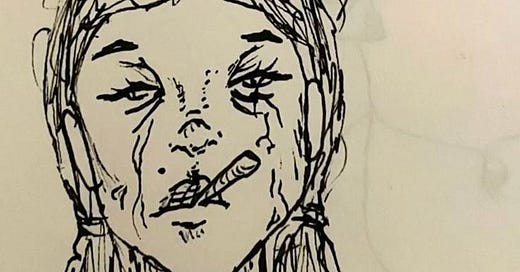Dissecting Male Validation
It's a human tendency to want to connect and be seen by others, we all feel this way, but why is it something that we do feel when we aren’t ready for the outcomes of accepting it?
Male validation has been on my mind a lot recently. I’ve never really been that girl, but I've also never been a single adult. After ending a 4-year relationship with someone I considered my best friend, lover, and confidant I guess you could say my self-confidence may have plummeted. I’ve been feeling these emotions that I hadn’t had in so long. Feelings of ugliness, unwantedness, and anger — anger I was even seeking these forms of attention to begin with. But it's so human to enjoy or seek validation whether that be male validation, female validation, or any sort of sexual attention in general. But why does it feel so embarrassing to admit that? It's a human tendency to want to connect and be seen by others, we all feel this way, but why is it something that we do feel when we aren’t ready for the outcomes of accepting it?
I think a part of this want I have to be seen by men, is growing up in a world where the “male gaze” is the primary lens in which everything operates. Don't get me wrong I grew up in a household where masculinity wasn't traditional. Conversations with men in my life were around emotions, conversions about feminism, and being seen not as some otherworldly creature that many of the college men seem to see me and the other women in my life as today. I also grew up having a sense that I would be more than a woman without a counterpart. But still, there is this innate need that has been chewing at me for more than a month, craving attention from the men around me.
There's a term that Cheryl Strayed uses when talking about this wanting in her response to the New York Times sweet spot article, I’m in Love. But I Still Crave the Attention of Other Men, which was “internalized sexism” which she says is a cultural phenomenon amongst women. Living in a world shaped by the male gaze, we may find ourselves seeking validation through being sexualized, even as we intellectually resist these desires. The tension between rejection and internalization—doesn’t imply shallowness or desperation. Rather, it suggests that yes our culture has influenced us into more sexual beings but this I take as the human need to connect and be the social beings we tend to be.
I don't think it's necessarily a bad thing to want to be wanted, it's an innate human desire. But when you begin sacrificing the individual aspects of yourself in hopes of gaining this validation, that's where I draw the line. I think feeling guilt and shame is part of internalized sexism phenomena regarding male validation. To admit to wanting to be wanted admits in some capacity you're lonely. We have been retraining ourselves as women to believe that we don’t need someone else to feel loved, seen, or even attractive. But honestly, I think that's a lot easier said than done.




